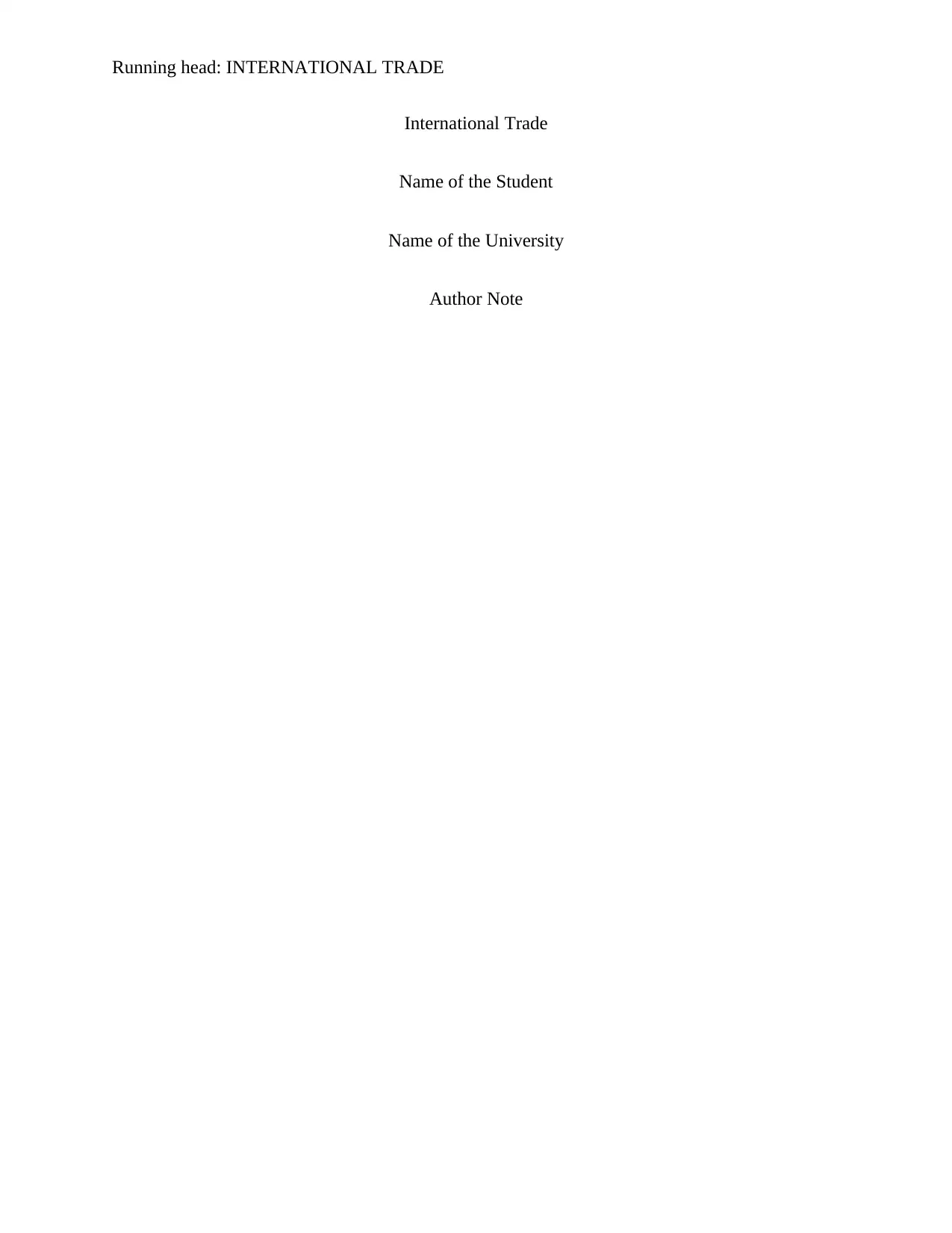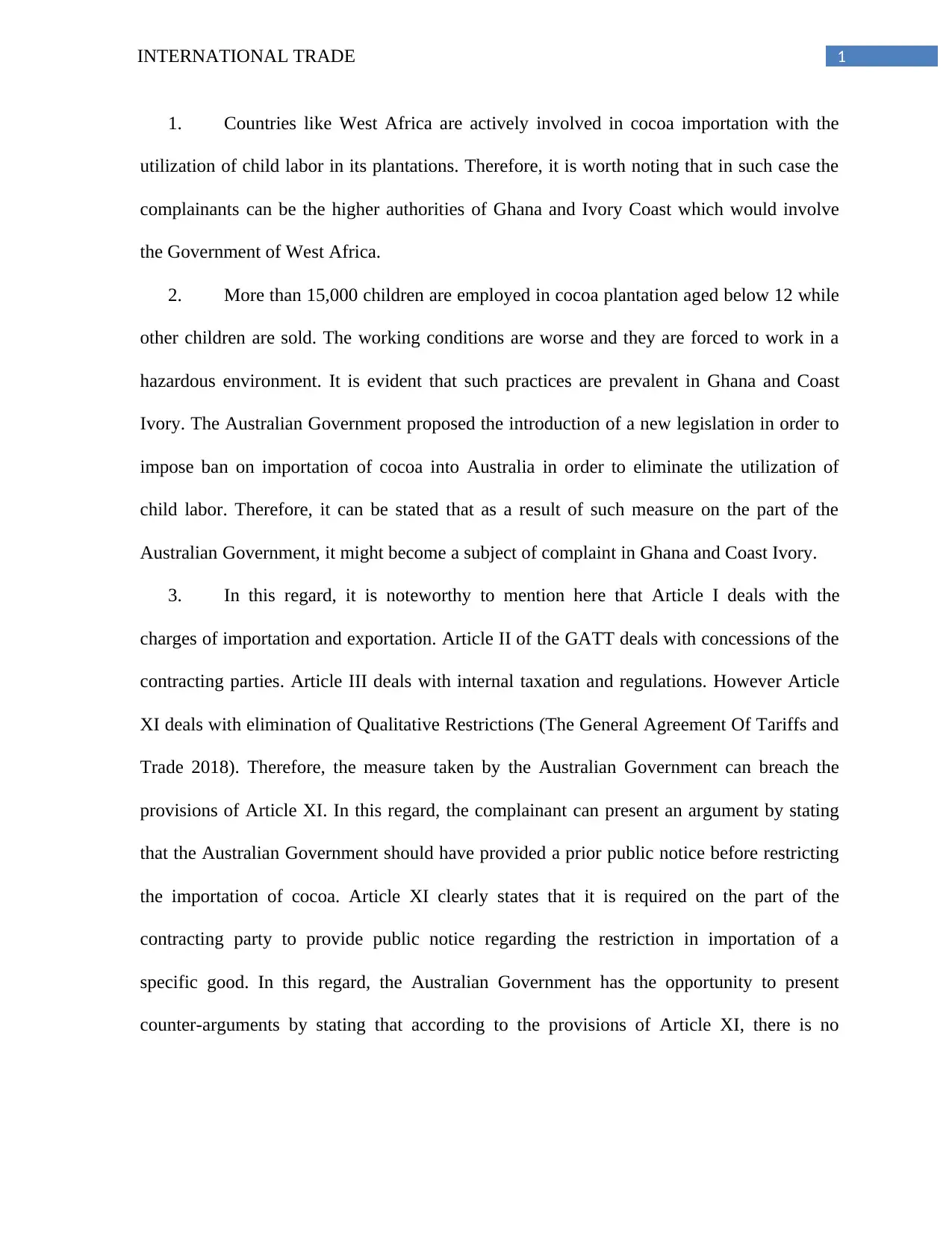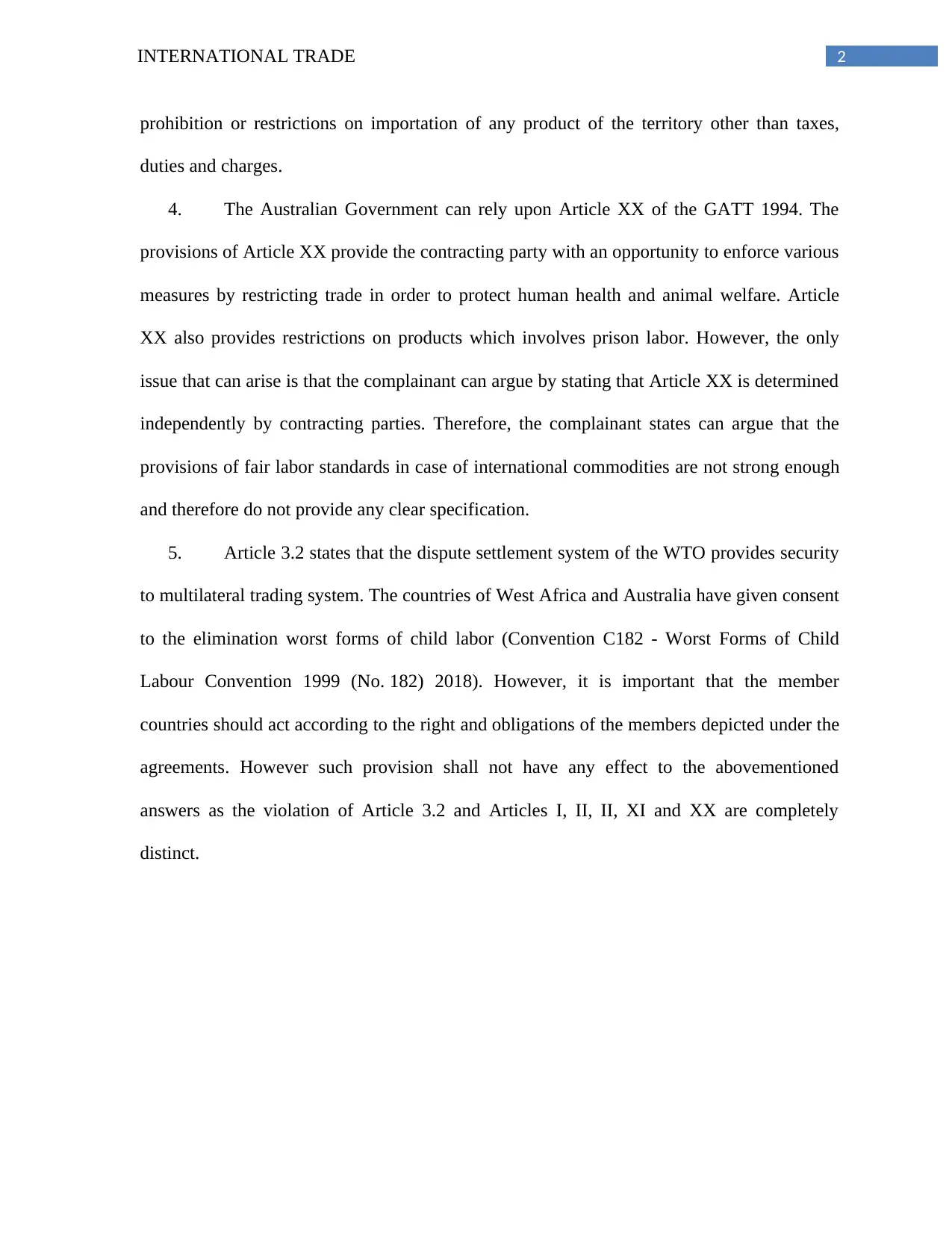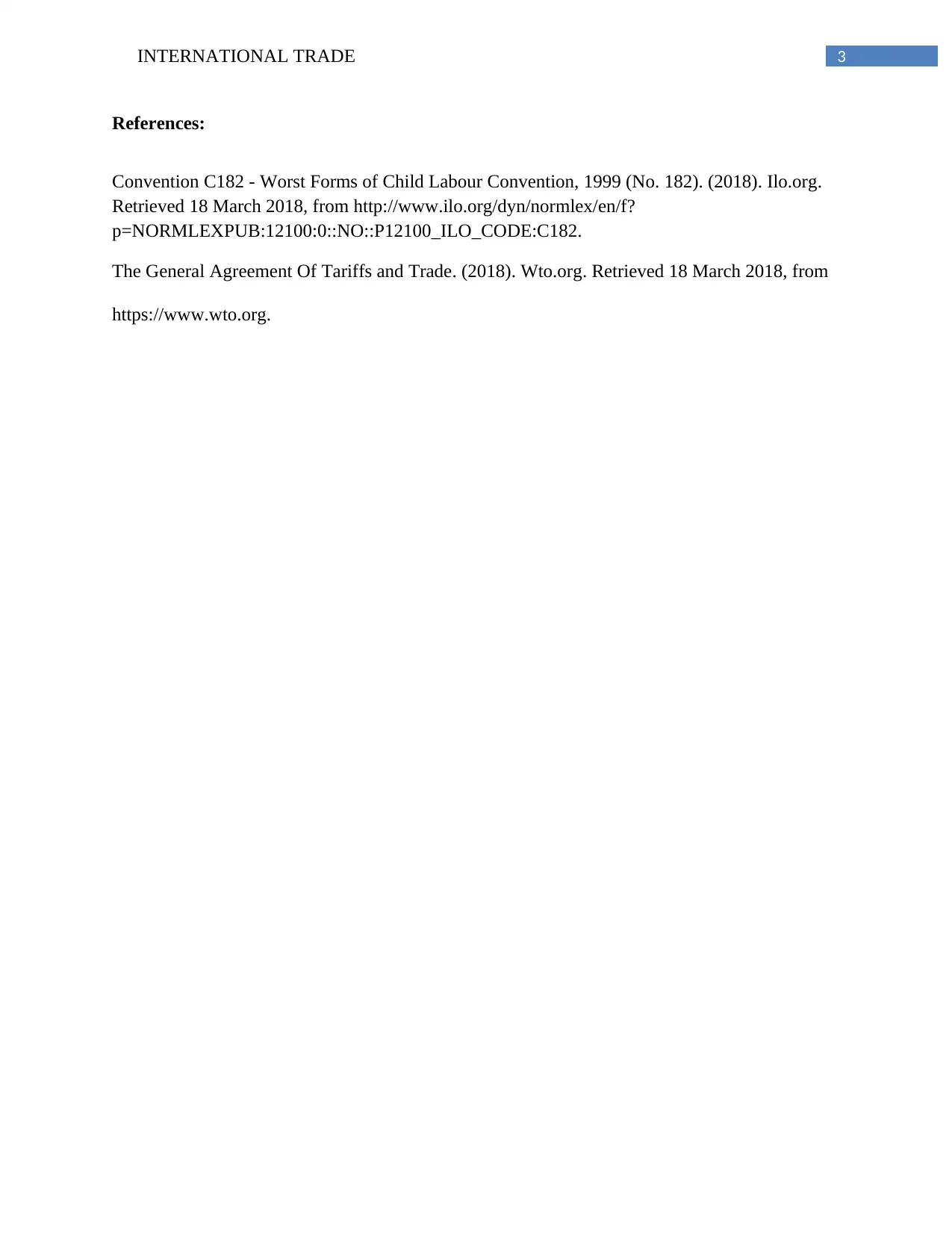International Trade: Child Labor, Cocoa, and Australian Legislation
VerifiedAdded on 2021/04/17
|4
|662
|31
Report
AI Summary
This report analyzes the potential conflict between Australia's proposed ban on cocoa imports due to child labor concerns and the provisions of the General Agreement on Tariffs and Trade (GATT). The report highlights the situation in West Africa, where child labor is prevalent in cocoa plantations, and examines the Australian government's consideration of legislation to ban the import of cocoa not certified as child-labor-free. It delves into the relevant articles of the GATT, specifically Article I, Article II, Article III, Article XI, and Article XX, discussing potential arguments from both the complainant (West African countries) and the Australian government. The analysis considers issues such as public notice requirements for import restrictions and the exceptions provided by Article XX for protecting human health and animal welfare. The report also references the Convention C182 on the Worst Forms of Child Labour and the WTO's dispute settlement system, concluding that the Australian measure might be challenged under the GATT, but Australia could potentially defend its position based on Article XX.
1 out of 4





![[object Object]](/_next/static/media/star-bottom.7253800d.svg)